
sktime
A unified framework for machine learning with time series
Stars: 9260
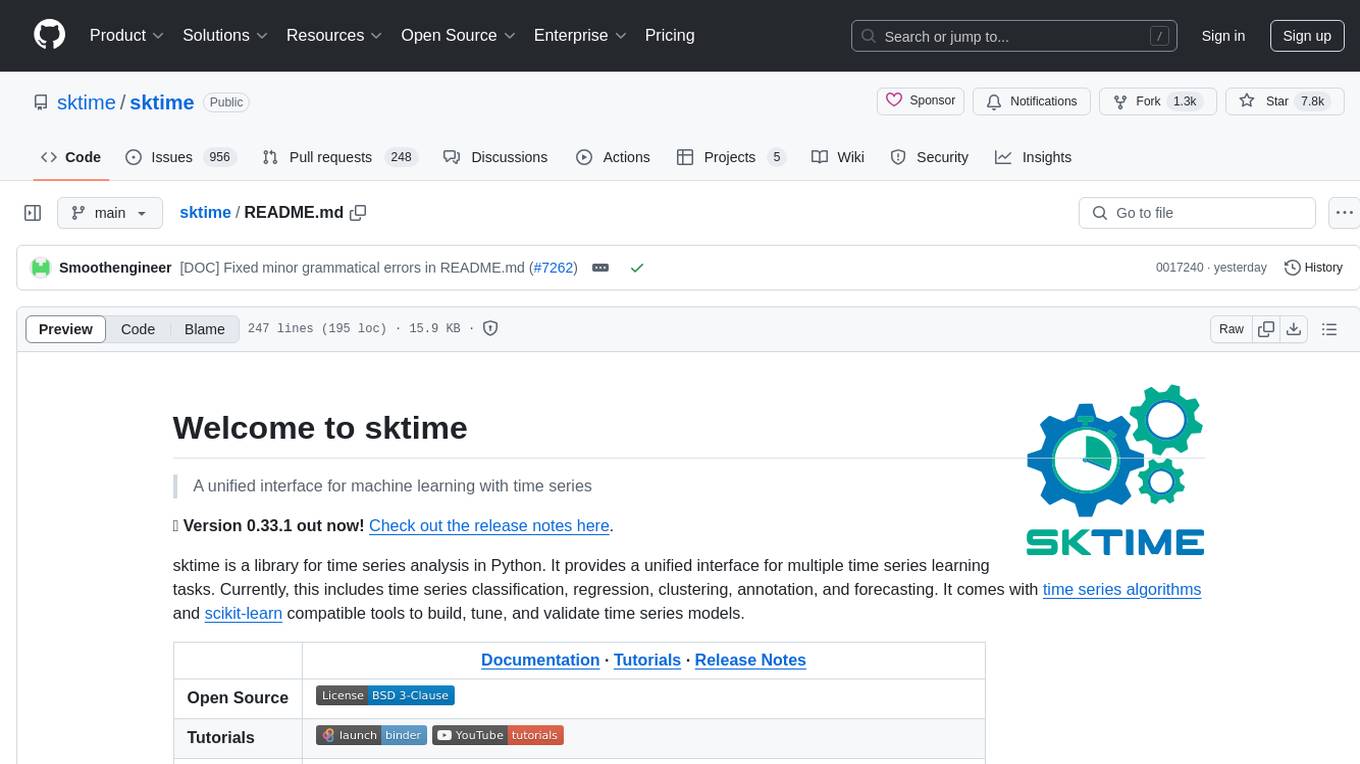
sktime is a Python library for time series analysis that provides a unified interface for various time series learning tasks such as classification, regression, clustering, annotation, and forecasting. It offers time series algorithms and tools compatible with scikit-learn for building, tuning, and validating time series models. sktime aims to enhance the interoperability and usability of the time series analysis ecosystem by empowering users to apply algorithms across different tasks and providing interfaces to related libraries like scikit-learn, statsmodels, tsfresh, PyOD, and fbprophet.
README:
A unified interface for machine learning with time series
🚀 Version 0.38.5 out now! Check out the release notes here.
sktime is a library for time series analysis in Python. It provides a unified interface for multiple time series learning tasks. Currently, this includes forecasting, time series classification, clustering, anomaly/changepoint detection, and other tasks. It comes with time series algorithms and scikit-learn compatible tools to build, tune, and validate time series models.
| Documentation · Tutorials · Release Notes | |
|---|---|
| Open Source |
 
|
| Tutorials |

|
| Community |
 
|
| CI/CD |
  
|
| Code |
   
|
| Downloads |
  )
|
| Citation |
| Documentation | |
|---|---|
| ⭐ Tutorials | New to sktime? Here's everything you need to know! |
| 📋 Binder Notebooks | Example notebooks to play with in your browser. |
| 👩💻 Examples | How to use sktime and its features. |
| ✂️ Extension Templates | How to build your own estimator using sktime's API. |
| 🎛️ API Reference | The detailed reference for sktime's API. |
| 📺 Video Tutorial | Our video tutorial from 2021 PyData Global. |
| 🛠️ Changelog | Changes and version history. |
| 🌳 Roadmap | sktime's software and community development plan. |
| 📝 Related Software | A list of related software. |
Questions and feedback are extremely welcome! We strongly believe in the value of sharing help publicly, as it allows a wider audience to benefit from it.
| Type | Platforms |
|---|---|
| 🐛 Bug Reports | GitHub Issue Tracker |
| ✨ Feature Requests & Ideas | GitHub Issue Tracker |
| 👩💻 Usage Questions | GitHub Discussions · Stack Overflow |
| 💬 General Discussion | GitHub Discussions |
| 🏭 Contribution & Development |
dev-chat channel · Discord
|
| 🌐 Meet-ups and collaboration sessions | Discord - Fridays 13 UTC, dev/meet-ups channel |
Our objective is to enhance the interoperability and usability of the time series analysis ecosystem in its entirety. sktime provides a unified interface for distinct but related time series learning tasks. It features dedicated time series algorithms and tools for composite model building, such as pipelining, ensembling, tuning, and reduction, empowering users to apply algorithms designed for one task to another.
sktime also provides interfaces to related libraries, for example scikit-learn, statsmodels, tsfresh, PyOD, and fbprophet, among others.
| Module | Status | Links |
|---|---|---|
| Forecasting | stable | Tutorial · API Reference · Extension Template |
| Time Series Classification | stable | Tutorial · API Reference · Extension Template |
| Time Series Regression | stable | API Reference |
| Transformations | stable | Tutorial · API Reference · Extension Template |
| Detection tasks | maturing | Extension Template |
| Parameter fitting | maturing | API Reference · Extension Template |
| Time Series Clustering | maturing | API Reference · Extension Template |
| Time Series Distances/Kernels | maturing | Tutorial · API Reference · Extension Template |
| Time Series Alignment | experimental | API Reference · Extension Template |
| Time Series Splitters | maturing | Extension Template |
| Distributions and simulation | experimental |
For troubleshooting and detailed installation instructions, see the documentation.
- Operating system: macOS X · Linux · Windows 8.1 or higher
- Python version: Python 3.10, 3.11, 3.12, and 3.13 (only 64-bit)
-
Package managers: pip · conda (via
conda-forge)
Using pip, sktime releases are available as source packages and binary wheels. Available wheels are listed here.
pip install sktimeor, with maximum dependencies,
pip install sktime[all_extras]For curated sets of soft dependencies for specific learning tasks:
pip install sktime[forecasting] # for selected forecasting dependencies
pip install sktime[forecasting,transformations] # forecasters and transformersor similar. Valid sets are:
forecastingtransformationsclassificationregressionclusteringparam_estnetworksdetectionalignment
Cave: in general, not all soft dependencies for a learning task are installed, only a curated selection.
You can also install sktime from conda via the conda-forge channel.
The feedstock including the build recipe and configuration is maintained
in this conda-forge repository.
conda install -c conda-forge sktimeor, with maximum dependencies,
conda install -c conda-forge sktime-all-extras(as conda does not support dependency sets,
flexible choice of soft dependencies is unavailable via conda)
from sktime.datasets import load_airline
from sktime.forecasting.base import ForecastingHorizon
from sktime.forecasting.theta import ThetaForecaster
from sktime.split import temporal_train_test_split
from sktime.performance_metrics.forecasting import mean_absolute_percentage_error
y = load_airline()
y_train, y_test = temporal_train_test_split(y)
fh = ForecastingHorizon(y_test.index, is_relative=False)
forecaster = ThetaForecaster(sp=12) # monthly seasonal periodicity
forecaster.fit(y_train)
y_pred = forecaster.predict(fh)
mean_absolute_percentage_error(y_test, y_pred)
>>> 0.08661467738190656from sktime.classification.interval_based import TimeSeriesForestClassifier
from sktime.datasets import load_arrow_head
from sklearn.model_selection import train_test_split
from sklearn.metrics import accuracy_score
X, y = load_arrow_head()
X_train, X_test, y_train, y_test = train_test_split(X, y)
classifier = TimeSeriesForestClassifier()
classifier.fit(X_train, y_train)
y_pred = classifier.predict(X_test)
accuracy_score(y_test, y_pred)
>>> 0.8679245283018868There are many ways to join the sktime community. We follow the all-contributors specification: all kinds of contributions are welcome - not just code.
| Documentation | |
|---|---|
| 💝 Contribute | How to contribute to sktime. |
| 🎒 Mentoring | New to open source? Apply to our mentoring program! |
| 📅 Meetings | Join our discussions, tutorials, workshops, and sprints! |
| 👩🔧 Developer Guides | How to further develop sktime's code base. |
| 🚧 Enhancement Proposals | Design a new feature for sktime. |
| 🏅 Contributors | A list of all contributors. |
| 🙋 Roles | An overview of our core community roles. |
| 💸 Donate | Fund sktime maintenance and development. |
| 🏛️ Governance | How and by whom decisions are made in sktime's community. |
Thanks to all our community for all your wonderful contributions, PRs, issues, ideas.
- By the community, for the community -- developed by a friendly and collaborative community.
- The right tool for the right task -- helping users to diagnose their learning problem and suitable scientific model types.
- Embedded in state-of-art ecosystems and provider of interoperable interfaces -- interoperable with scikit-learn, statsmodels, tsfresh, and other community favorites.
- Rich model composition and reduction functionality -- build tuning and feature extraction pipelines, solve forecasting tasks with scikit-learn regressors.
- Clean, descriptive specification syntax -- based on modern object-oriented design principles for data science.
- Fair model assessment and benchmarking -- build your models, inspect your models, check your models, and avoid pitfalls.
- Easily extensible -- easy extension templates to add your own algorithms compatible with sktime's API.
For Tasks:
Click tags to check more tools for each tasksFor Jobs:
Alternative AI tools for sktime
Similar Open Source Tools

sktime
sktime is a Python library for time series analysis that provides a unified interface for various time series learning tasks such as classification, regression, clustering, annotation, and forecasting. It offers time series algorithms and tools compatible with scikit-learn for building, tuning, and validating time series models. sktime aims to enhance the interoperability and usability of the time series analysis ecosystem by empowering users to apply algorithms across different tasks and providing interfaces to related libraries like scikit-learn, statsmodels, tsfresh, PyOD, and fbprophet.
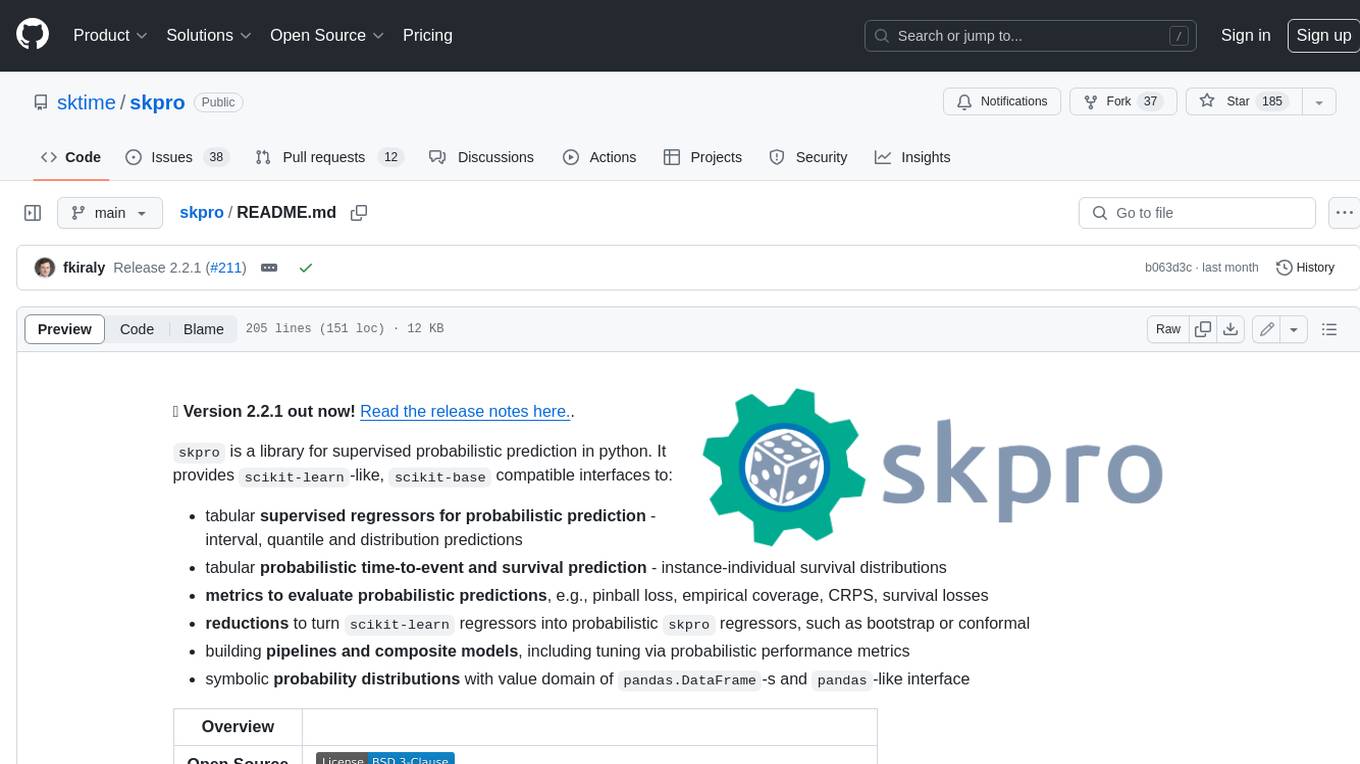
skpro
skpro is a library for supervised probabilistic prediction in python. It provides `scikit-learn`-like, `scikit-base` compatible interfaces to: * tabular **supervised regressors for probabilistic prediction** \- interval, quantile and distribution predictions * tabular **probabilistic time-to-event and survival prediction** \- instance-individual survival distributions * **metrics to evaluate probabilistic predictions** , e.g., pinball loss, empirical coverage, CRPS, survival losses * **reductions** to turn `scikit-learn` regressors into probabilistic `skpro` regressors, such as bootstrap or conformal * building **pipelines and composite models** , including tuning via probabilistic performance metrics * symbolic **probability distributions** with value domain of `pandas.DataFrame`-s and `pandas`-like interface

motia
Motia is an AI agent framework designed for software engineers to create, test, and deploy production-ready AI agents quickly. It provides a code-first approach, allowing developers to write agent logic in familiar languages and visualize execution in real-time. With Motia, developers can focus on business logic rather than infrastructure, offering zero infrastructure headaches, multi-language support, composable steps, built-in observability, instant APIs, and full control over AI logic. Ideal for building sophisticated agents and intelligent automations, Motia's event-driven architecture and modular steps enable the creation of GenAI-powered workflows, decision-making systems, and data processing pipelines.
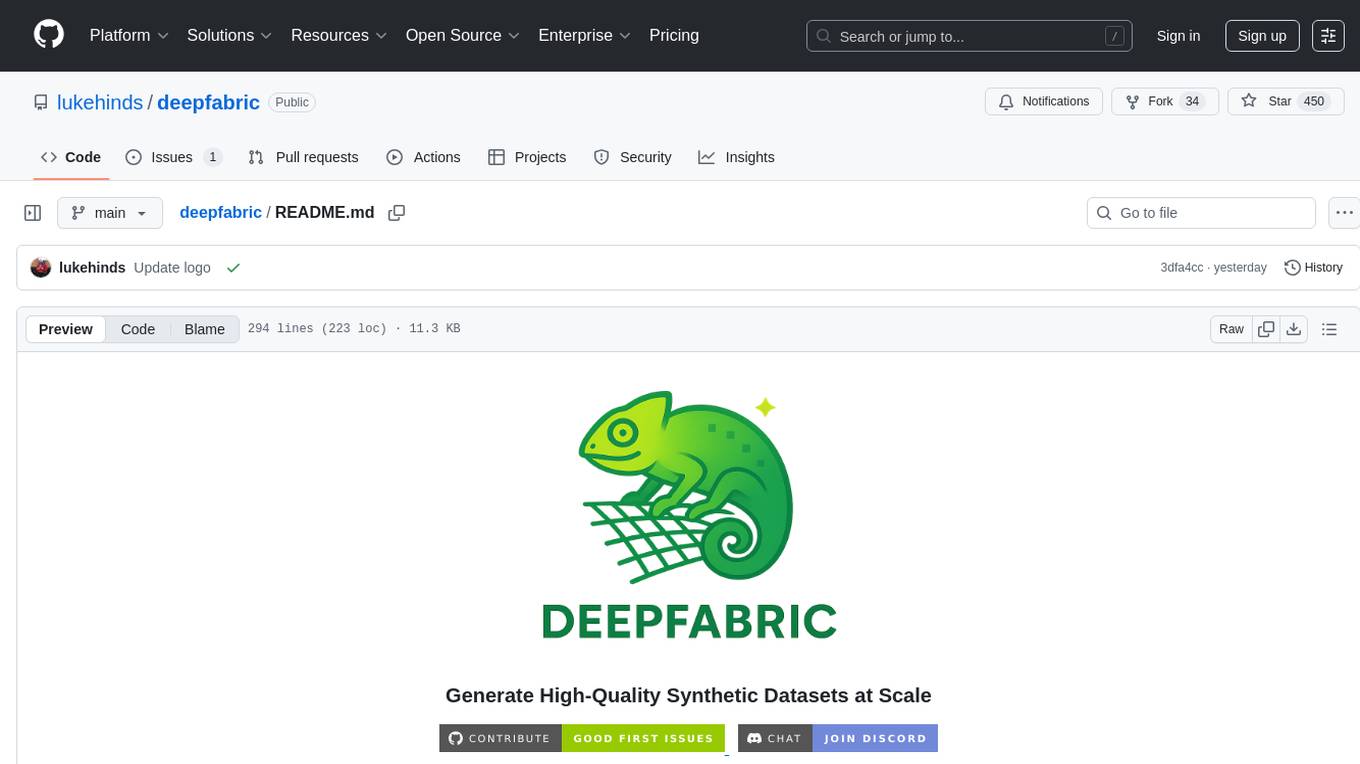
deepfabric
DeepFabric is a CLI tool and SDK designed for researchers and developers to generate high-quality synthetic datasets at scale using large language models. It leverages a graph and tree-based architecture to create diverse and domain-specific datasets while minimizing redundancy. The tool supports generating Chain of Thought datasets for step-by-step reasoning tasks and offers multi-provider support for using different language models. DeepFabric also allows for automatic dataset upload to Hugging Face Hub and uses YAML configuration files for flexibility in dataset generation.
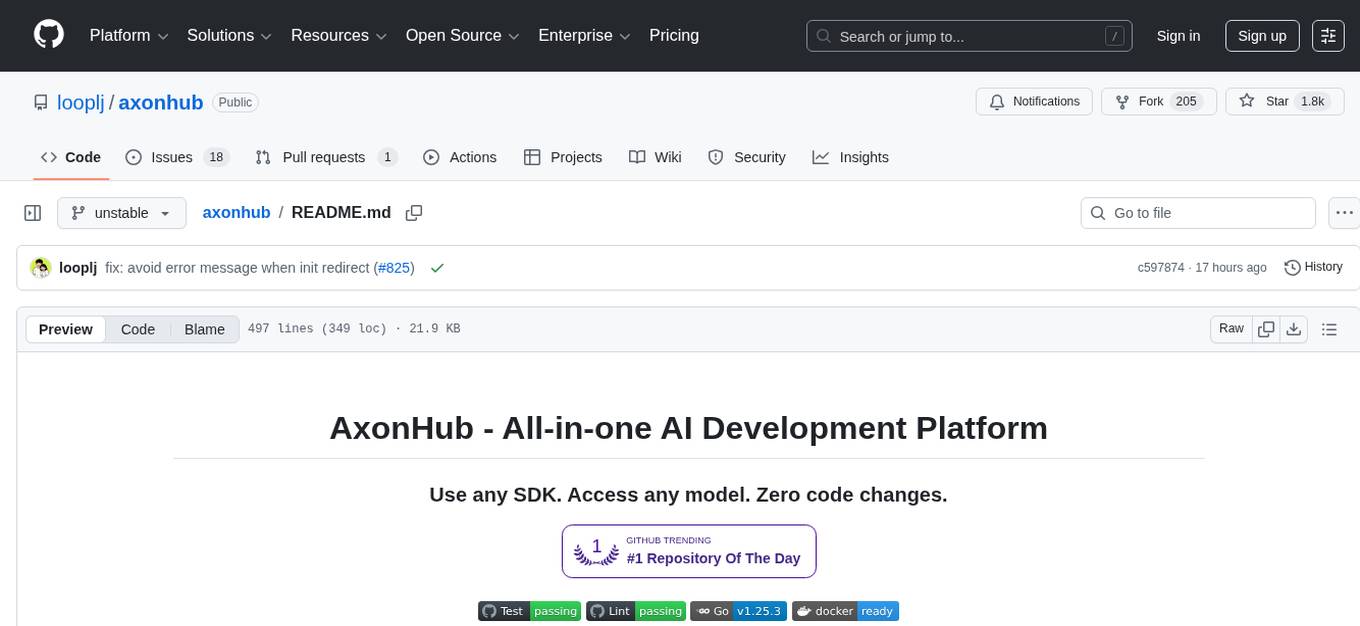
axonhub
AxonHub is an all-in-one AI development platform that serves as an AI gateway allowing users to switch between model providers without changing any code. It provides features like vendor lock-in prevention, integration simplification, observability enhancement, and cost control. Users can access any model using any SDK with zero code changes. The platform offers full request tracing, enterprise RBAC, smart load balancing, and real-time cost tracking. AxonHub supports multiple databases, provides a unified API gateway, and offers flexible model management and API key creation for authentication. It also integrates with various AI coding tools and SDKs for seamless usage.
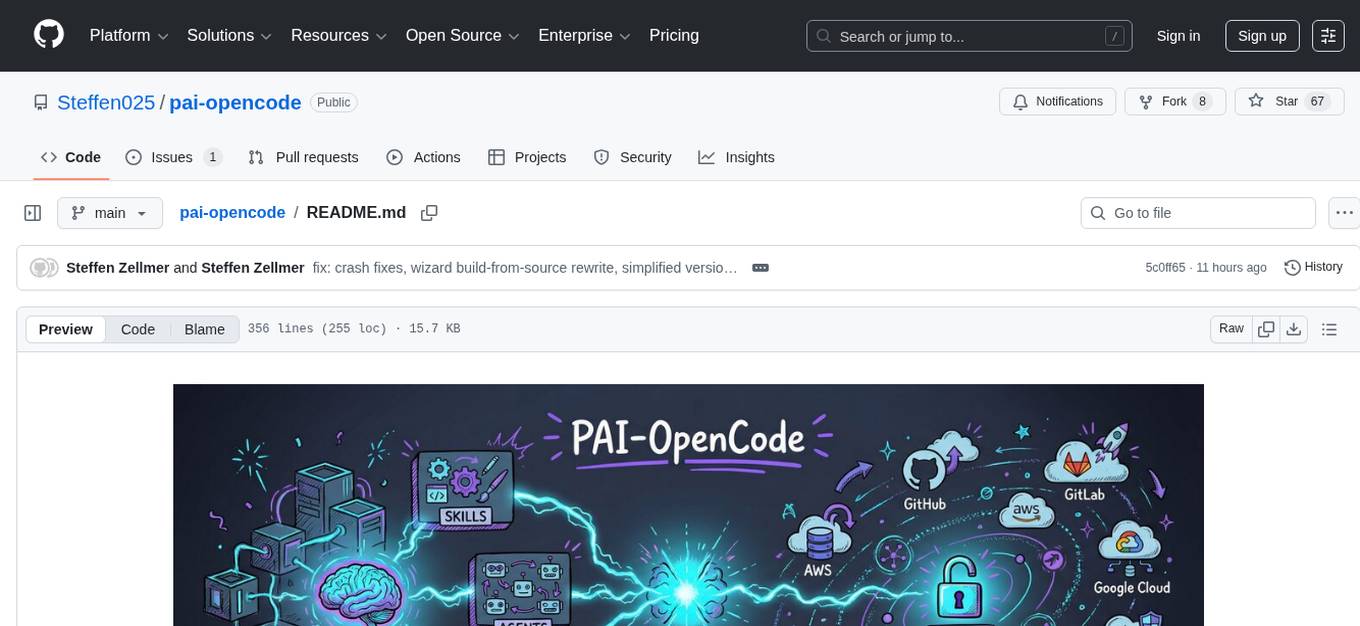
pai-opencode
PAI-OpenCode is a complete port of Daniel Miessler's Personal AI Infrastructure (PAI) to OpenCode, an open-source, provider-agnostic AI coding assistant. It brings modular capabilities, dynamic multi-agent orchestration, session history, and lifecycle automation to personalize AI assistants for users. With support for 75+ AI providers, PAI-OpenCode offers dynamic per-task model routing, full PAI infrastructure, real-time session sharing, and multiple client options. The tool optimizes cost and quality with a 3-tier model strategy and a 3-tier research system, allowing users to switch presets for different routing strategies. PAI-OpenCode's architecture preserves PAI's design while adapting to OpenCode, documented through Architecture Decision Records (ADRs).
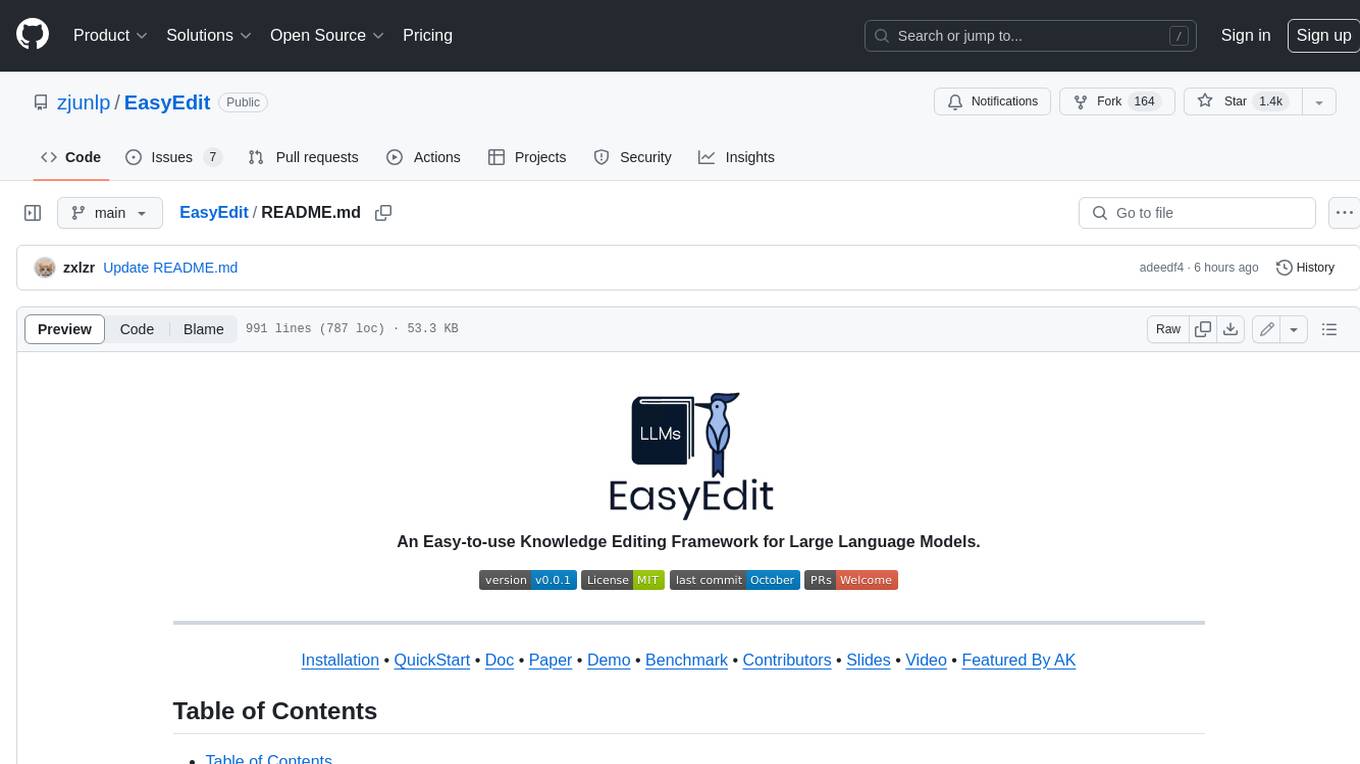
EasyEdit
EasyEdit is a Python package for edit Large Language Models (LLM) like `GPT-J`, `Llama`, `GPT-NEO`, `GPT2`, `T5`(support models from **1B** to **65B**), the objective of which is to alter the behavior of LLMs efficiently within a specific domain without negatively impacting performance across other inputs. It is designed to be easy to use and easy to extend.
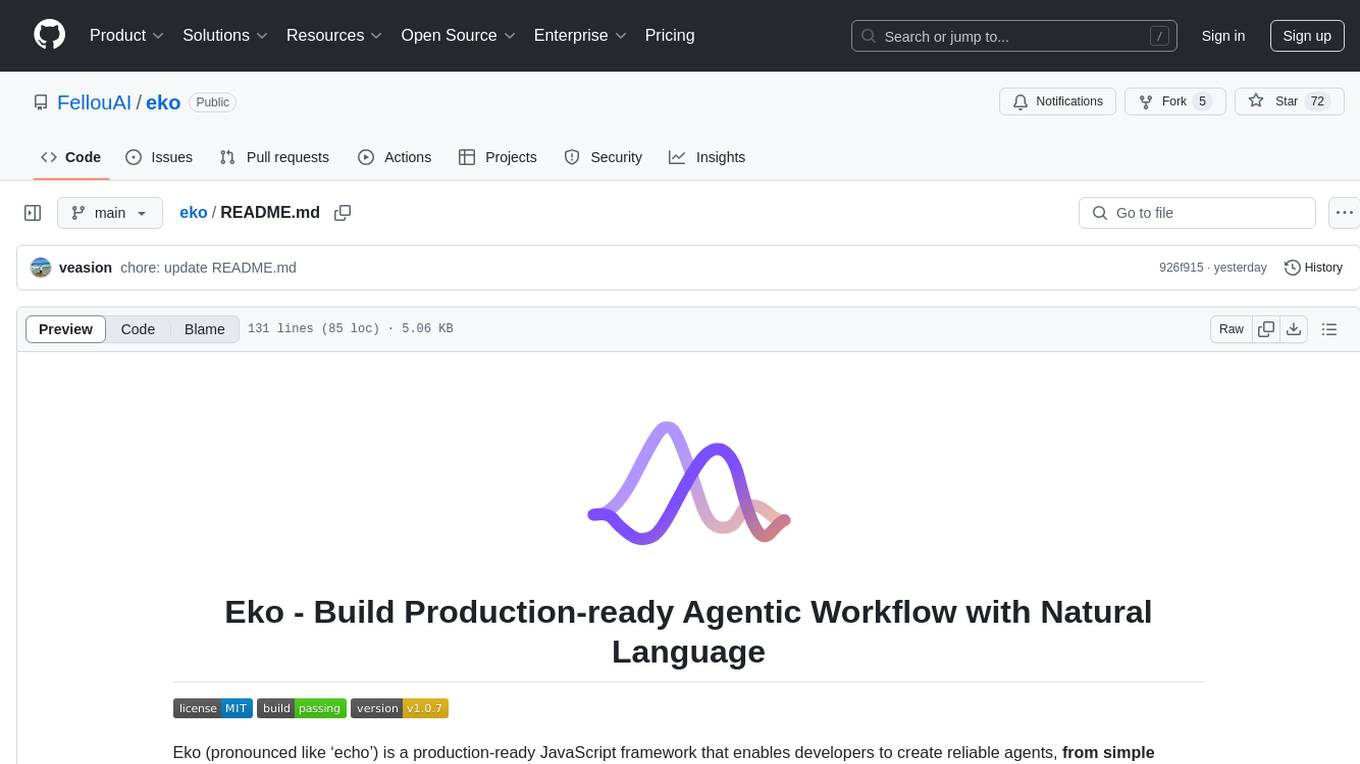
eko
Eko is a lightweight and flexible command-line tool for managing environment variables in your projects. It allows you to easily set, get, and delete environment variables for different environments, making it simple to manage configurations across development, staging, and production environments. With Eko, you can streamline your workflow and ensure consistency in your application settings without the need for complex setup or configuration files.
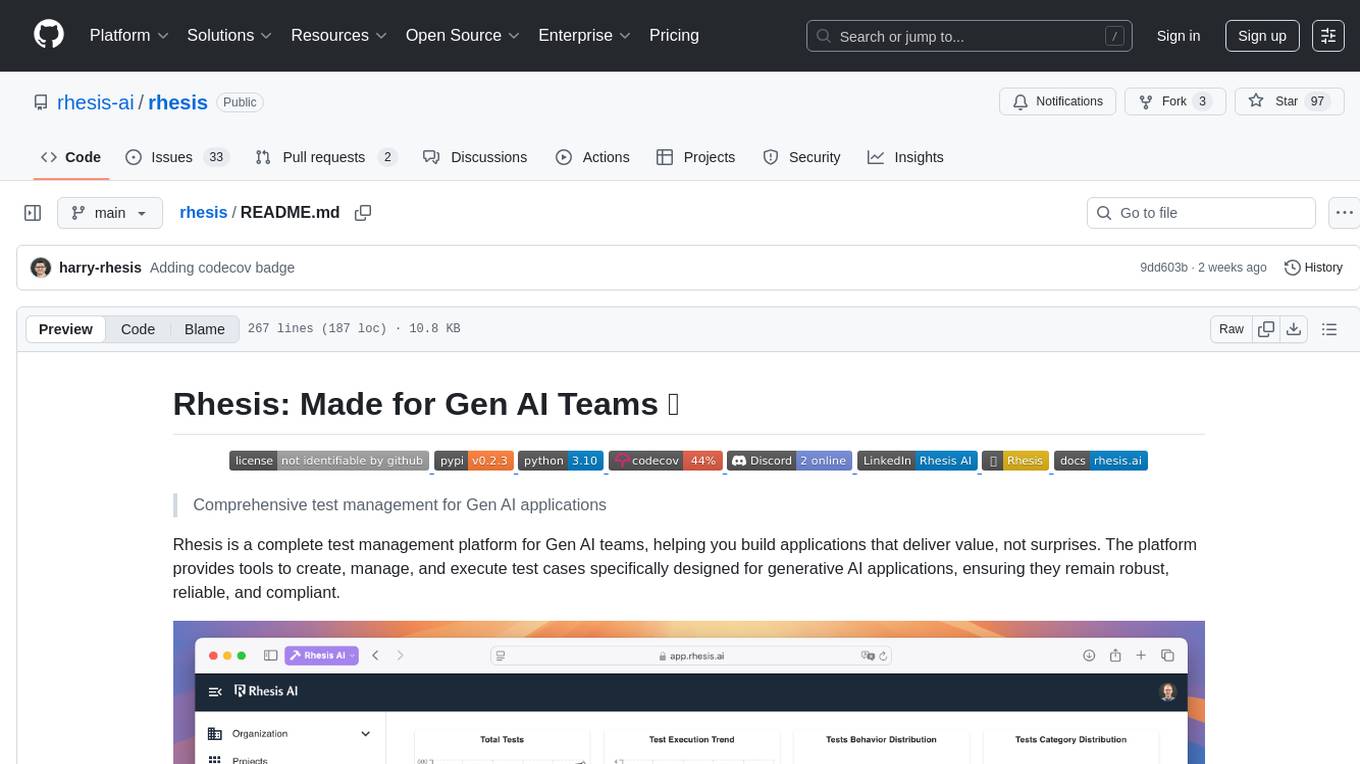
rhesis
Rhesis is a comprehensive test management platform designed for Gen AI teams, offering tools to create, manage, and execute test cases for generative AI applications. It ensures the robustness, reliability, and compliance of AI systems through features like test set management, automated test generation, edge case discovery, compliance validation, integration capabilities, and performance tracking. The platform is open source, emphasizing community-driven development, transparency, extensible architecture, and democratizing AI safety. It includes components such as backend services, frontend applications, SDK for developers, worker services, chatbot applications, and Polyphemus for uncensored LLM service. Rhesis enables users to address challenges unique to testing generative AI applications, such as non-deterministic outputs, hallucinations, edge cases, ethical concerns, and compliance requirements.
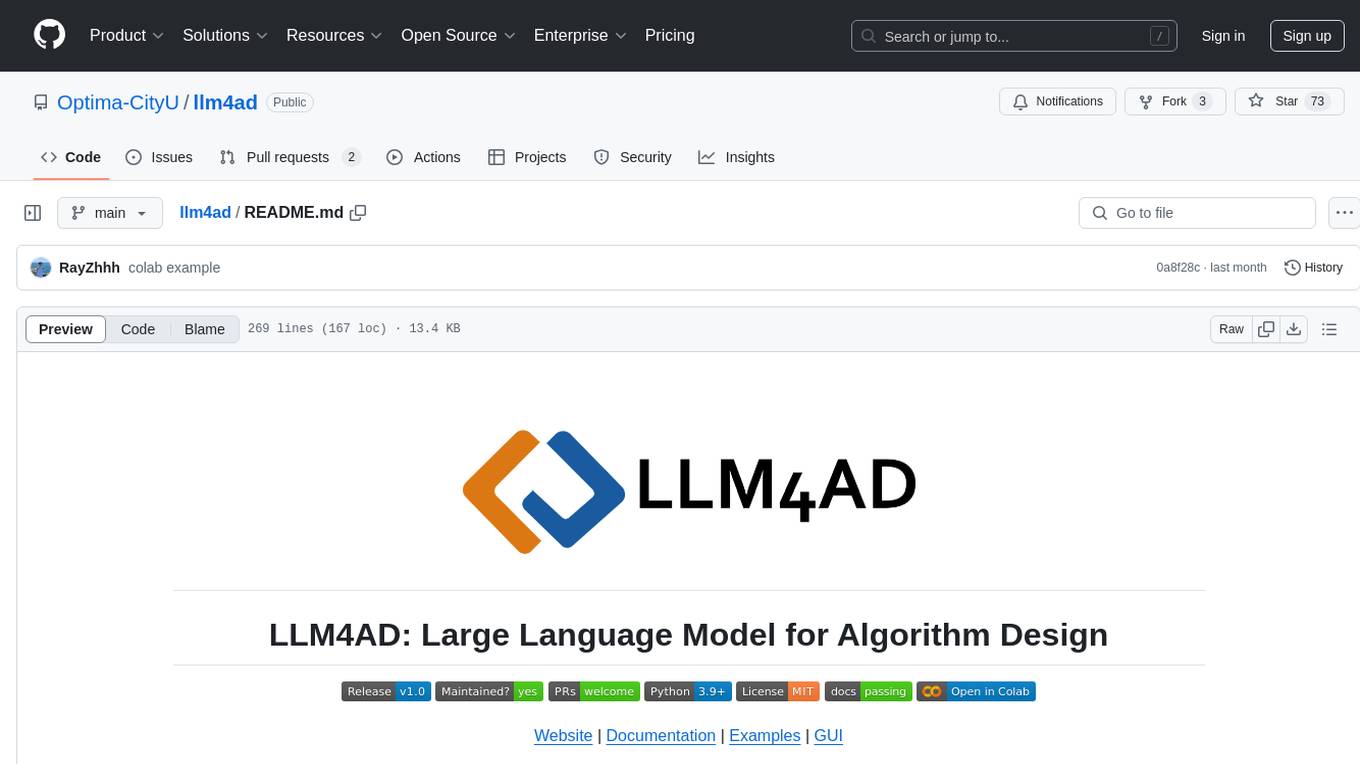
llm4ad
LLM4AD is an open-source Python-based platform leveraging Large Language Models (LLMs) for Automatic Algorithm Design (AD). It provides unified interfaces for methods, tasks, and LLMs, along with features like evaluation acceleration, secure evaluation, logs, GUI support, and more. The platform was originally developed for optimization tasks but is versatile enough to be used in other areas such as machine learning, science discovery, game theory, and engineering design. It offers various search methods and algorithm design tasks across different domains. LLM4AD supports remote LLM API, local HuggingFace LLM deployment, and custom LLM interfaces. The project is licensed under the MIT License and welcomes contributions, collaborations, and issue reports.
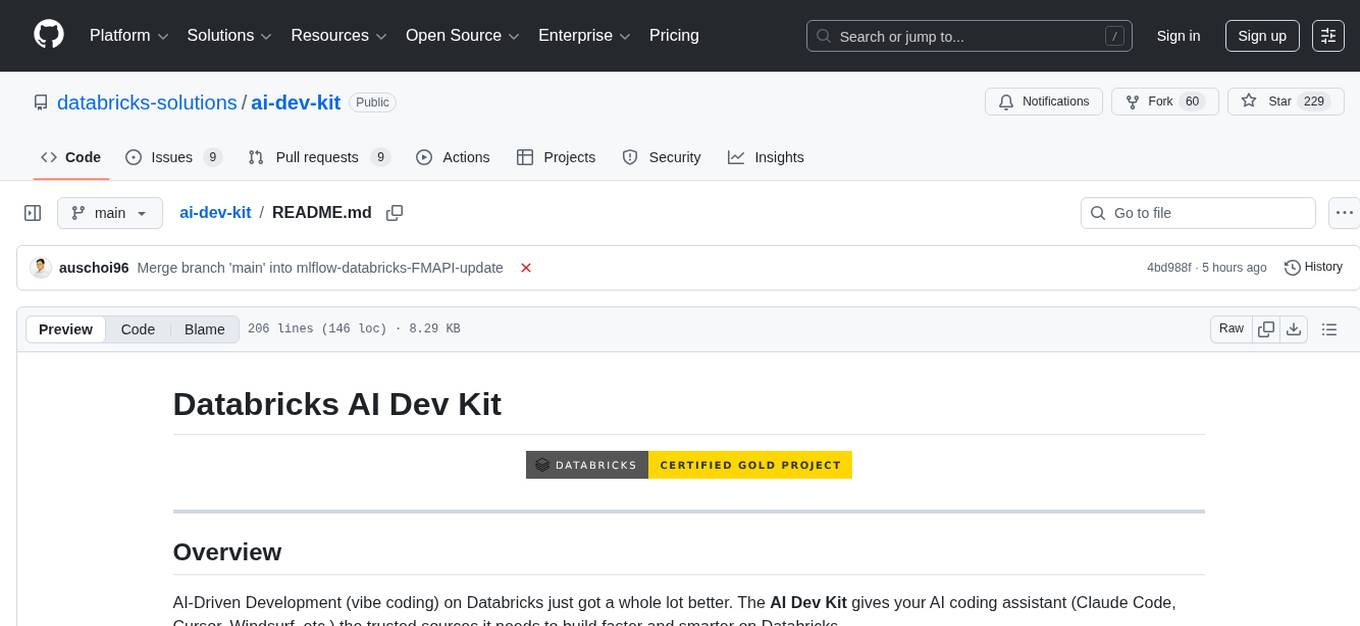
ai-dev-kit
The AI Dev Kit is a comprehensive toolkit designed to enhance AI-driven development on Databricks. It provides trusted sources for AI coding assistants like Claude Code and Cursor to build faster and smarter on Databricks. The kit includes features such as Spark Declarative Pipelines, Databricks Jobs, AI/BI Dashboards, Unity Catalog, Genie Spaces, Knowledge Assistants, MLflow Experiments, Model Serving, Databricks Apps, and more. Users can choose from different adventures like installing the kit, using the visual builder app, teaching AI assistants Databricks patterns, executing Databricks actions, or building custom integrations with the core library. The kit also includes components like databricks-tools-core, databricks-mcp-server, databricks-skills, databricks-builder-app, and ai-dev-project.
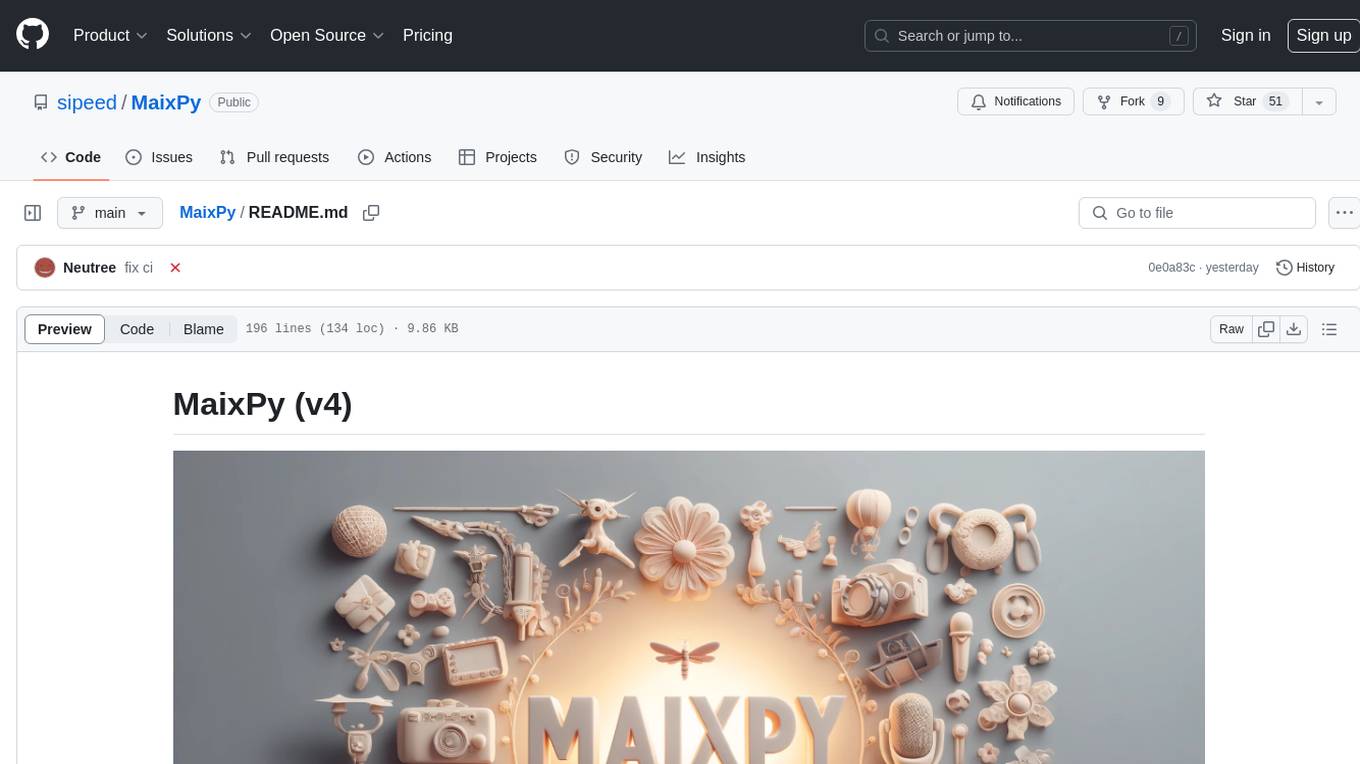
MaixPy
MaixPy is a Python SDK that enables users to easily create AI vision projects on edge devices. It provides a user-friendly API for accessing NPU, making it suitable for AI Algorithm Engineers, STEM teachers, Makers, Engineers, Students, Enterprises, and Contestants. The tool supports Python programming, MaixVision Workstation, AI vision, video streaming, voice recognition, and peripheral usage. It also offers an online AI training platform called MaixHub. MaixPy is designed for new hardware platforms like MaixCAM, offering improved performance and features compared to older versions. The ecosystem includes hardware, software, tools, documentation, and a cloud platform.
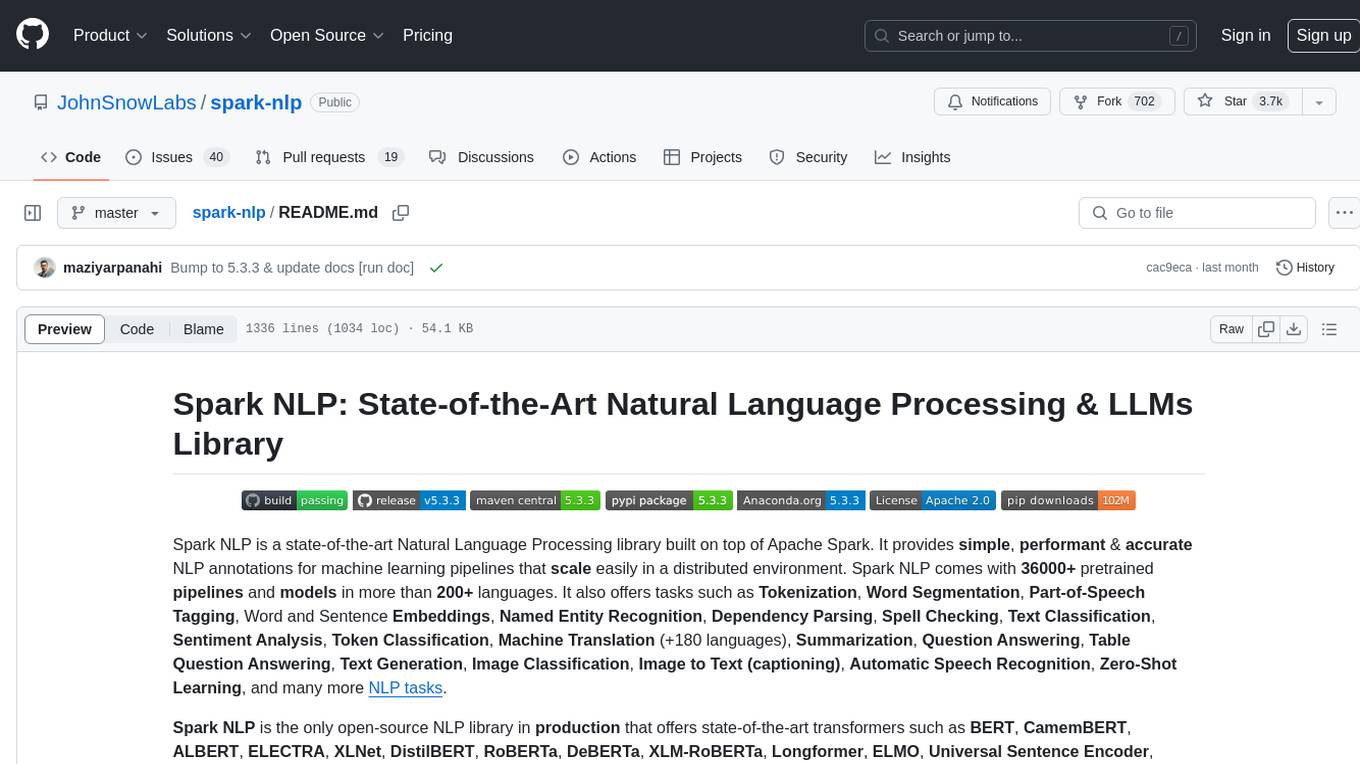
spark-nlp
Spark NLP is a state-of-the-art Natural Language Processing library built on top of Apache Spark. It provides simple, performant, and accurate NLP annotations for machine learning pipelines that scale easily in a distributed environment. Spark NLP comes with 36000+ pretrained pipelines and models in more than 200+ languages. It offers tasks such as Tokenization, Word Segmentation, Part-of-Speech Tagging, Named Entity Recognition, Dependency Parsing, Spell Checking, Text Classification, Sentiment Analysis, Token Classification, Machine Translation, Summarization, Question Answering, Table Question Answering, Text Generation, Image Classification, Image to Text (captioning), Automatic Speech Recognition, Zero-Shot Learning, and many more NLP tasks. Spark NLP is the only open-source NLP library in production that offers state-of-the-art transformers such as BERT, CamemBERT, ALBERT, ELECTRA, XLNet, DistilBERT, RoBERTa, DeBERTa, XLM-RoBERTa, Longformer, ELMO, Universal Sentence Encoder, Llama-2, M2M100, BART, Instructor, E5, Google T5, MarianMT, OpenAI GPT2, Vision Transformers (ViT), OpenAI Whisper, and many more not only to Python and R, but also to JVM ecosystem (Java, Scala, and Kotlin) at scale by extending Apache Spark natively.
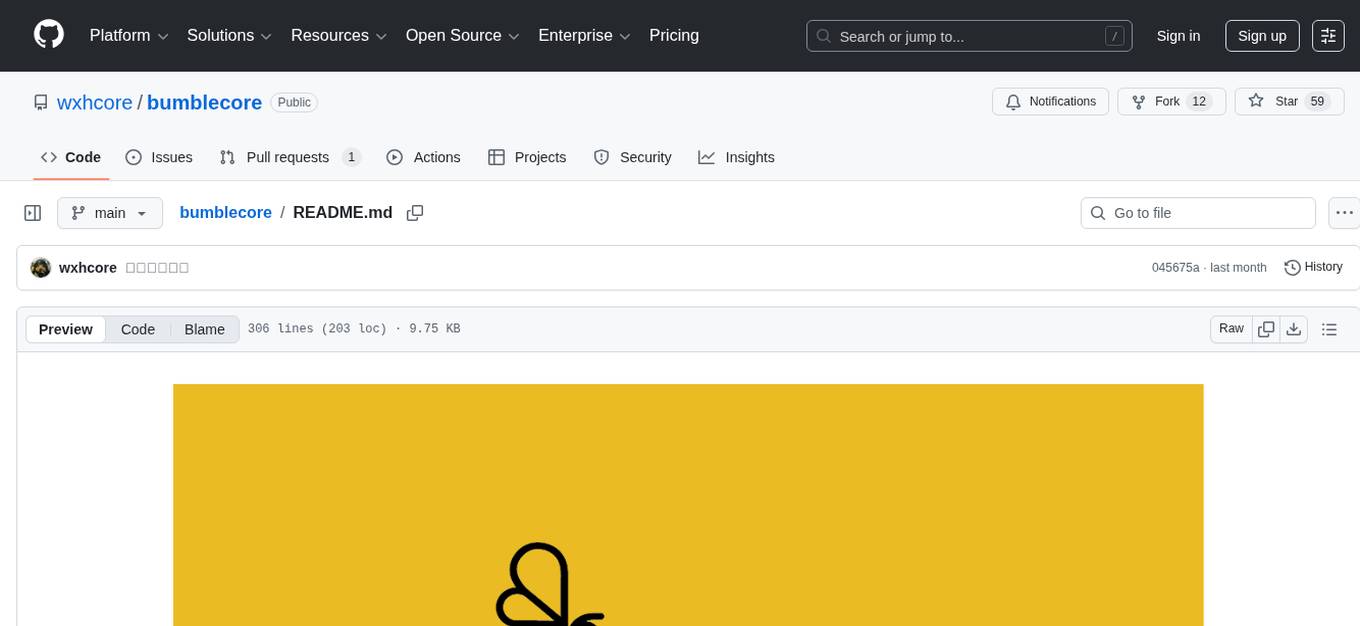
bumblecore
BumbleCore is a hands-on large language model training framework that allows complete control over every training detail. It provides manual training loop, customizable model architecture, and support for mainstream open-source models. The framework follows core principles of transparency, flexibility, and efficiency. BumbleCore is suitable for deep learning researchers, algorithm engineers, learners, and enterprise teams looking for customization and control over model training processes.
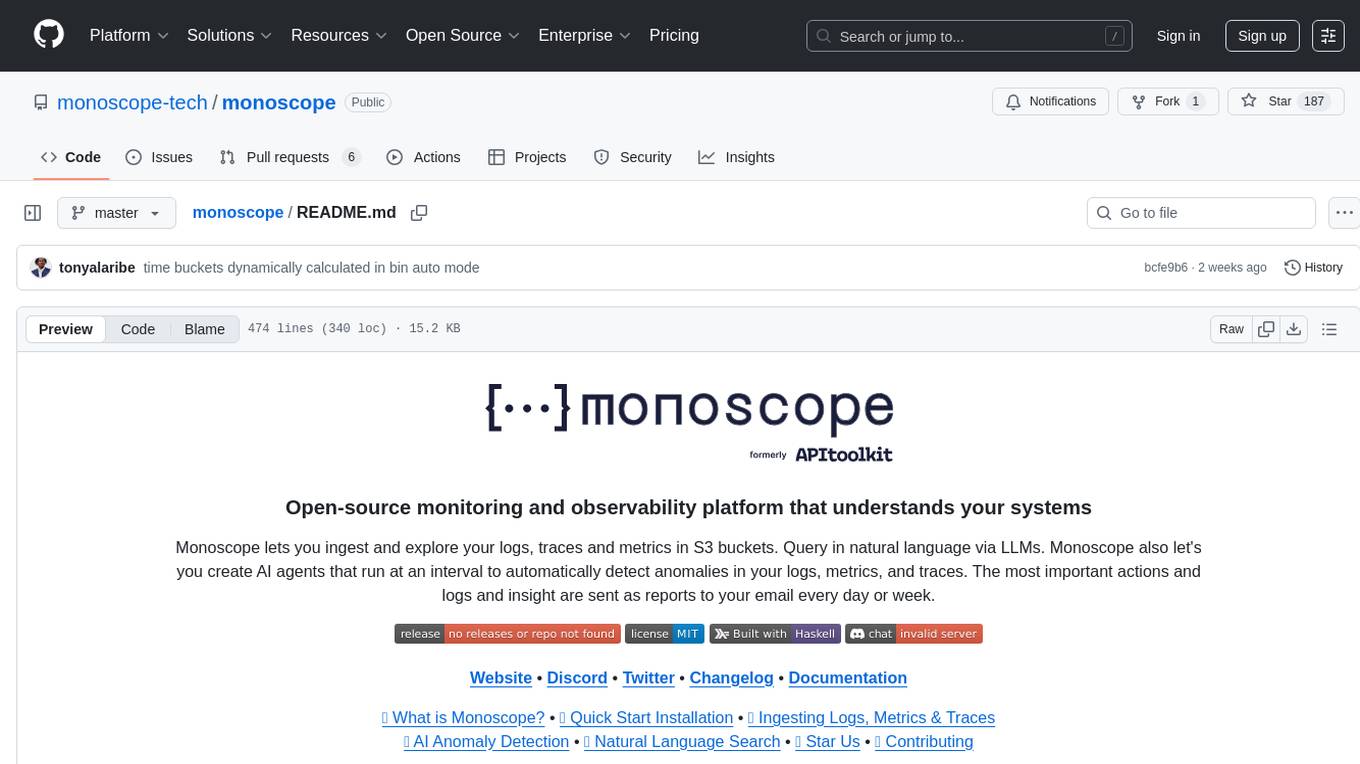
monoscope
Monoscope is an open-source monitoring and observability platform that uses artificial intelligence to understand and monitor systems automatically. It allows users to ingest and explore logs, traces, and metrics in S3 buckets, query in natural language via LLMs, and create AI agents to detect anomalies. Key capabilities include universal data ingestion, AI-powered understanding, natural language interface, cost-effective storage, and zero configuration. Monoscope is designed to reduce alert fatigue, catch issues before they impact users, and provide visibility across complex systems.
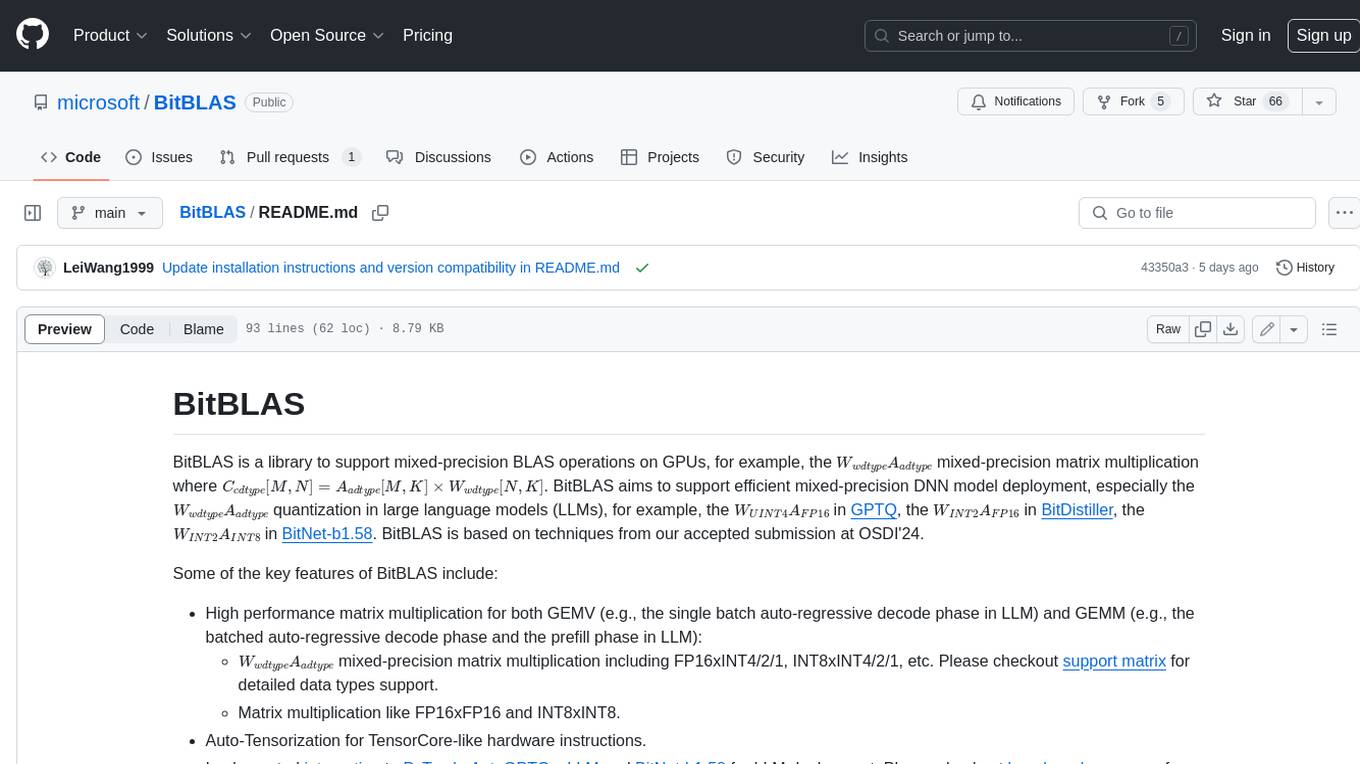
BitBLAS
BitBLAS is a library for mixed-precision BLAS operations on GPUs, for example, the $W_{wdtype}A_{adtype}$ mixed-precision matrix multiplication where $C_{cdtype}[M, N] = A_{adtype}[M, K] \times W_{wdtype}[N, K]$. BitBLAS aims to support efficient mixed-precision DNN model deployment, especially the $W_{wdtype}A_{adtype}$ quantization in large language models (LLMs), for example, the $W_{UINT4}A_{FP16}$ in GPTQ, the $W_{INT2}A_{FP16}$ in BitDistiller, the $W_{INT2}A_{INT8}$ in BitNet-b1.58. BitBLAS is based on techniques from our accepted submission at OSDI'24.
For similar tasks
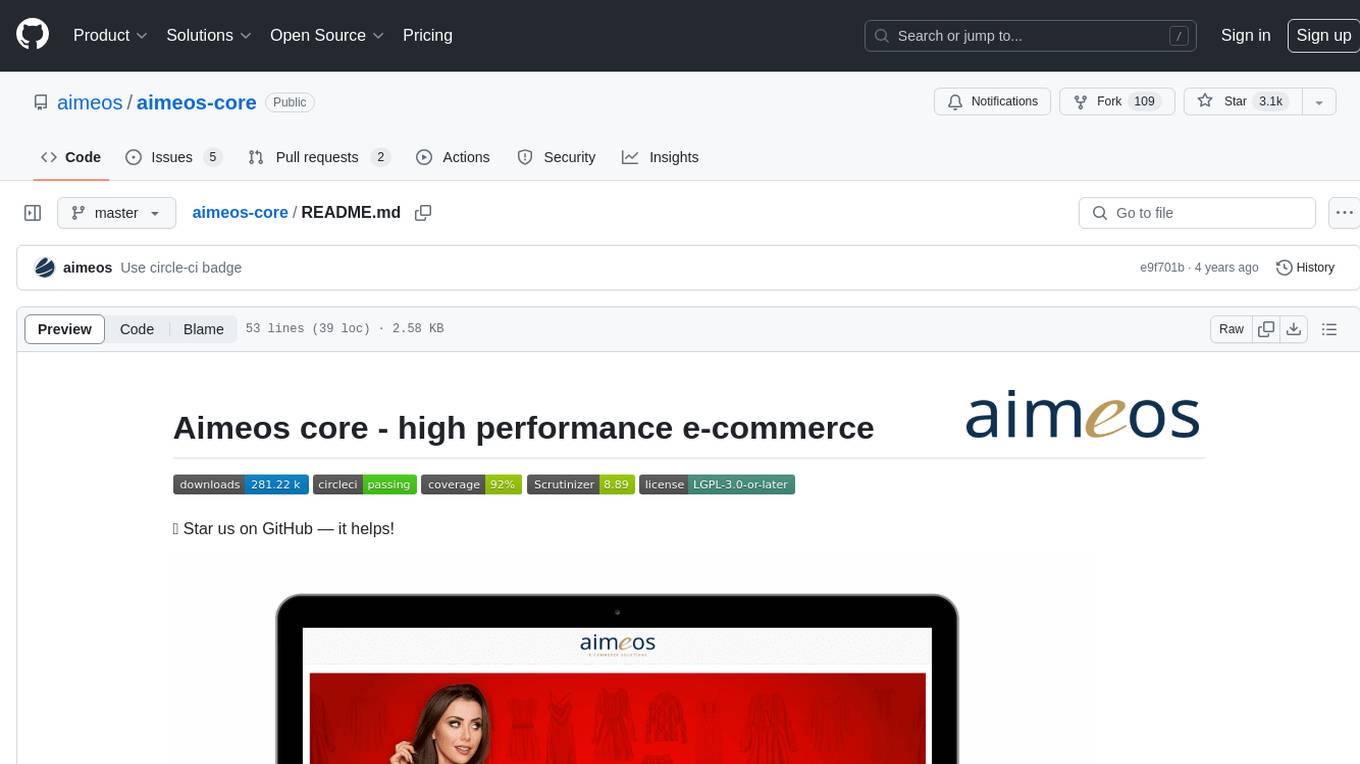
aimeos-core
Aimeos is an Open Source e-commerce framework for online shops consisting of the e-commerce library, the administration interface and different front-ends. It offers a modular stack that provides flexibility and speed. Unlike other shop systems, Aimeos allows users to choose from several user front-ends and customize them according to their needs or create their own. It is suitable for medium to large businesses requiring seamless integration into existing systems like content management, customer relationship management, or enterprise resource planning systems. Aimeos also serves as a base for portals or marketplaces.
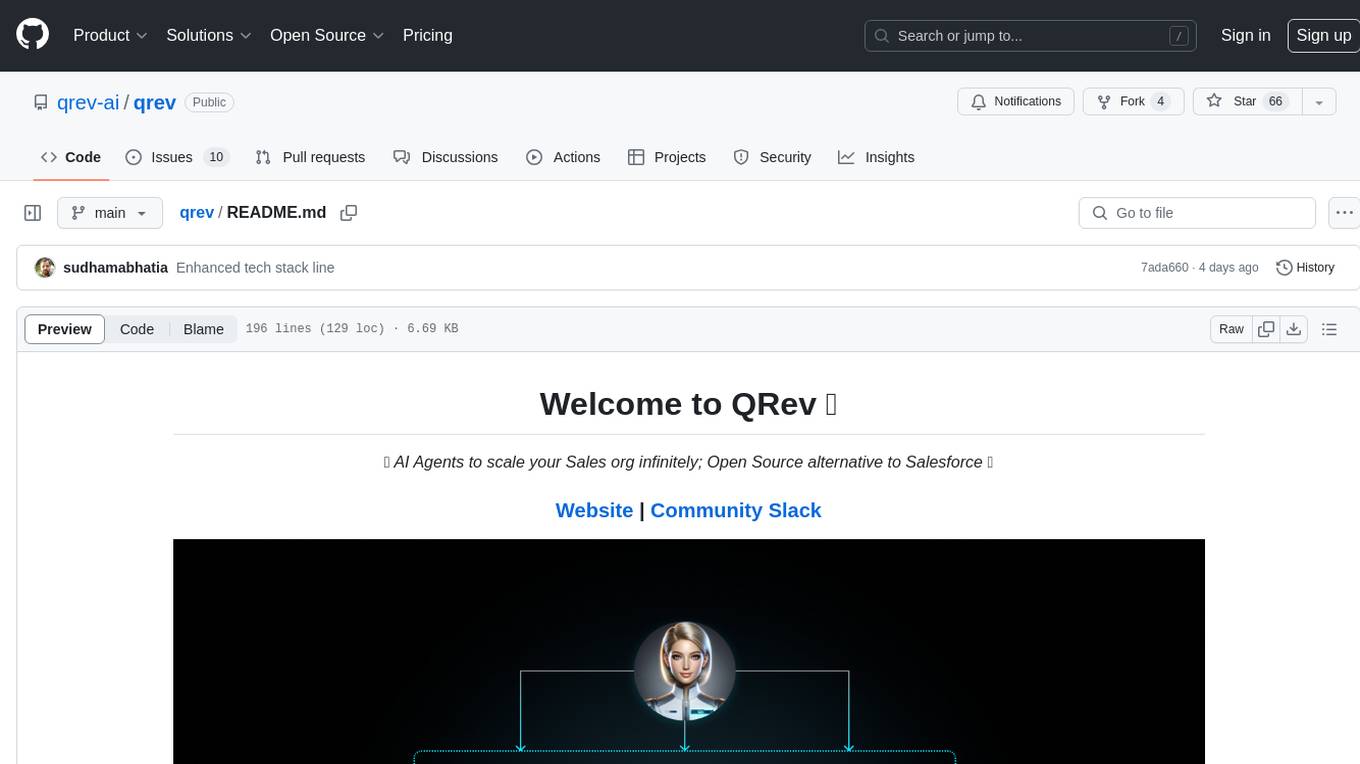
qrev
QRev is an open-source alternative to Salesforce, offering AI agents to scale sales organizations infinitely. It aims to provide digital workers for various sales roles or a superagent named Qai. The tech stack includes TypeScript for frontend, NodeJS for backend, MongoDB for app server database, ChromaDB for vector database, SQLite for AI server SQL relational database, and Langchain for LLM tooling. The tool allows users to run client app, app server, and AI server components. It requires Node.js and MongoDB to be installed, and provides detailed setup instructions in the README file.

sktime
sktime is a Python library for time series analysis that provides a unified interface for various time series learning tasks such as classification, regression, clustering, annotation, and forecasting. It offers time series algorithms and tools compatible with scikit-learn for building, tuning, and validating time series models. sktime aims to enhance the interoperability and usability of the time series analysis ecosystem by empowering users to apply algorithms across different tasks and providing interfaces to related libraries like scikit-learn, statsmodels, tsfresh, PyOD, and fbprophet.
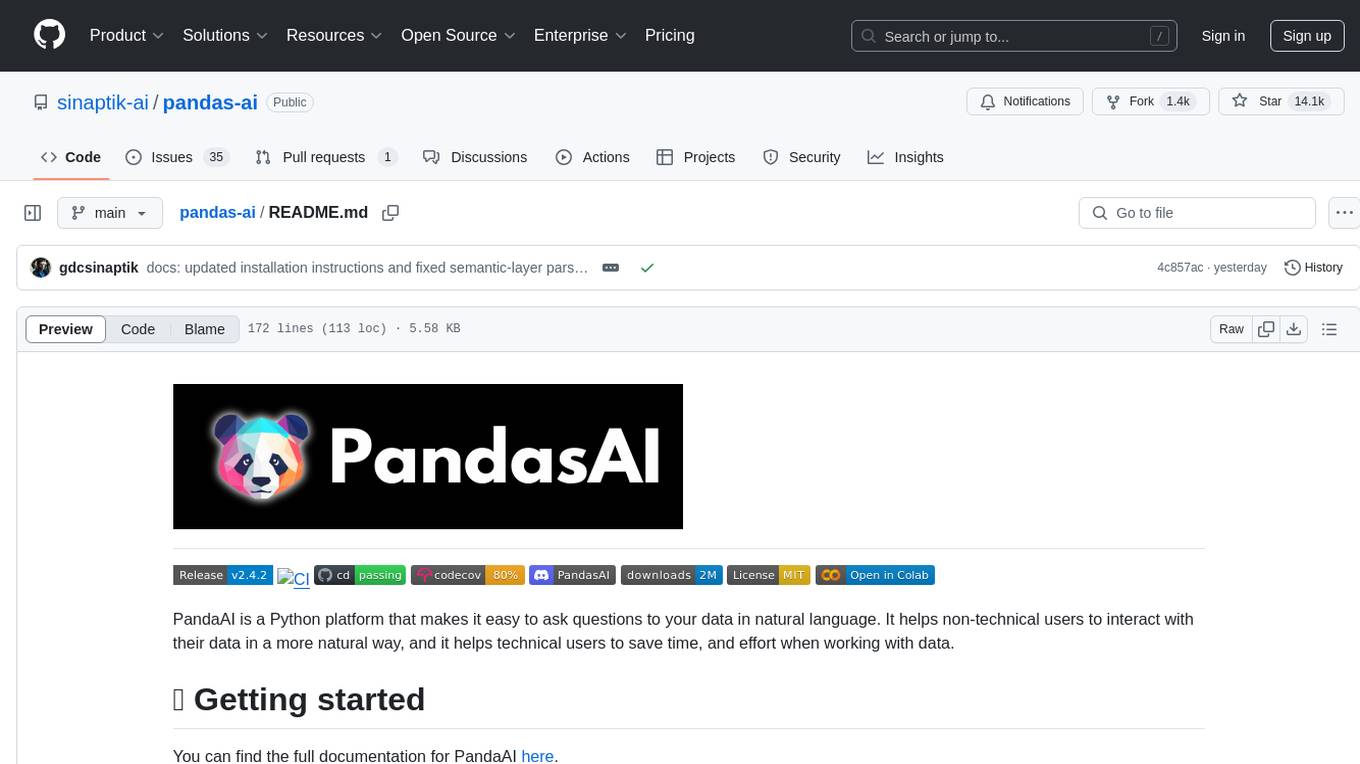
pandas-ai
PandaAI is a Python platform that enables users to interact with their data in natural language, catering to both non-technical and technical users. It simplifies data querying and analysis, offering conversational data analytics capabilities with minimal code. Users can ask questions, visualize charts, and compare dataframes effortlessly. The tool aims to streamline data exploration and decision-making processes by providing a user-friendly interface for data manipulation and analysis.
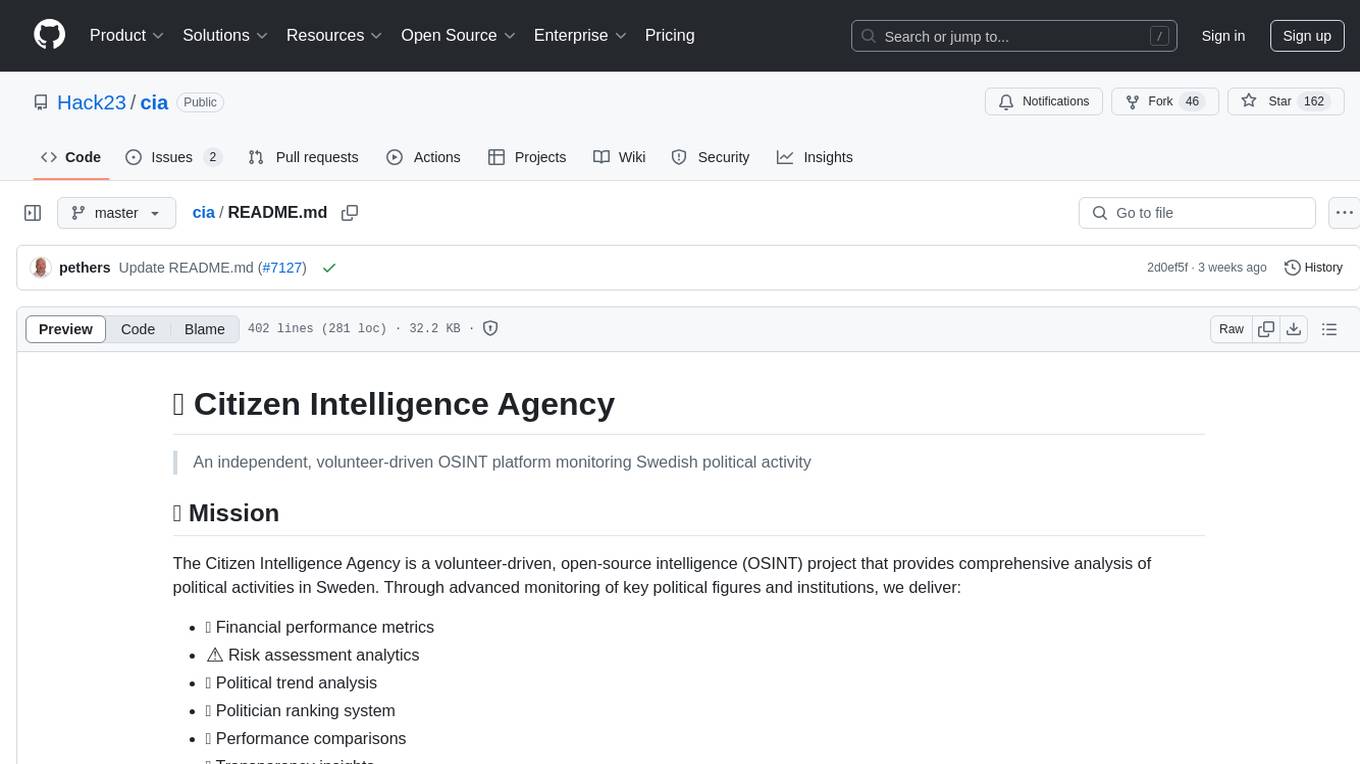
cia
CIA is a powerful open-source tool designed for data analysis and visualization. It provides a user-friendly interface for processing large datasets and generating insightful reports. With CIA, users can easily explore data, perform statistical analysis, and create interactive visualizations to communicate findings effectively. Whether you are a data scientist, analyst, or researcher, CIA offers a comprehensive set of features to streamline your data analysis workflow and uncover valuable insights.
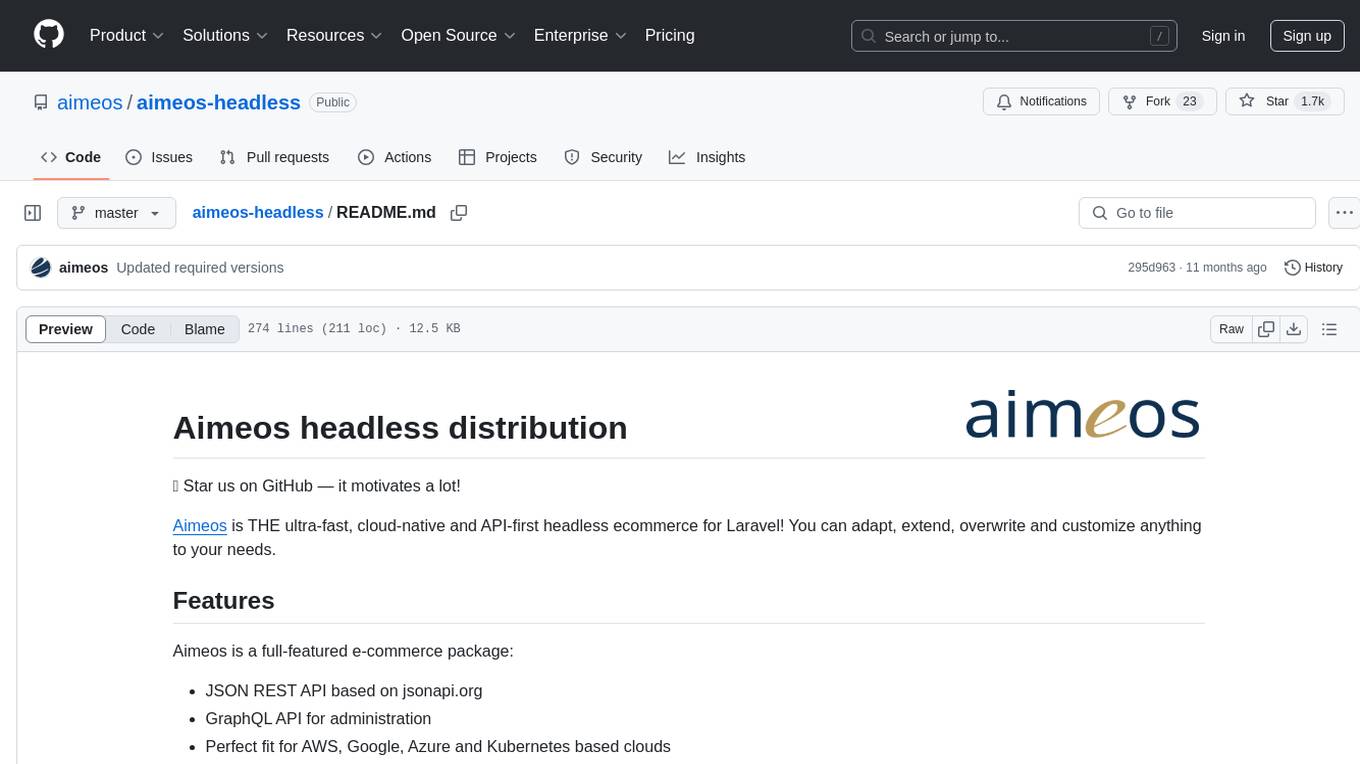
aimeos-headless
Aimeos headless distribution is an ultra-fast, cloud-native, and API-first headless ecommerce solution for Laravel. It offers a full-featured e-commerce package with features like JSON REST API, GraphQL API, multi-vendor support, subscriptions, block/tier pricing, admin backend, and more. The distribution is highly customizable, extensible, and suitable for multi-tenant e-commerce SaaS solutions. It supports multiple languages, AI-based text translation, and provides secure and high-quality source code. Aimeos is designed for AWS, Google, Azure, and Kubernetes based clouds, and can handle a wide range of products efficiently.
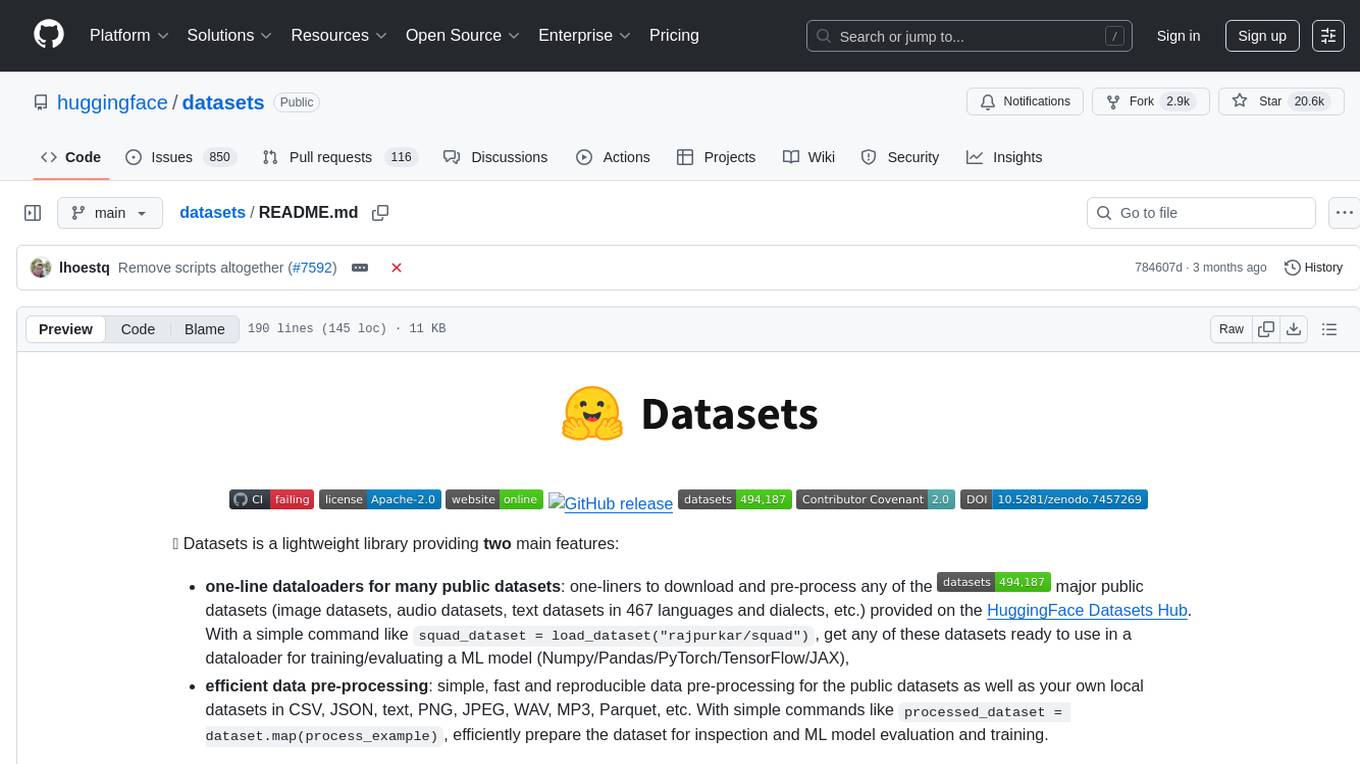
datasets
Datasets is a repository that provides a collection of various datasets for machine learning and data analysis projects. It includes datasets in different formats such as CSV, JSON, and Excel, covering a wide range of topics including finance, healthcare, marketing, and more. The repository aims to help data scientists, researchers, and students access high-quality datasets for training models, conducting experiments, and exploring data analysis techniques.
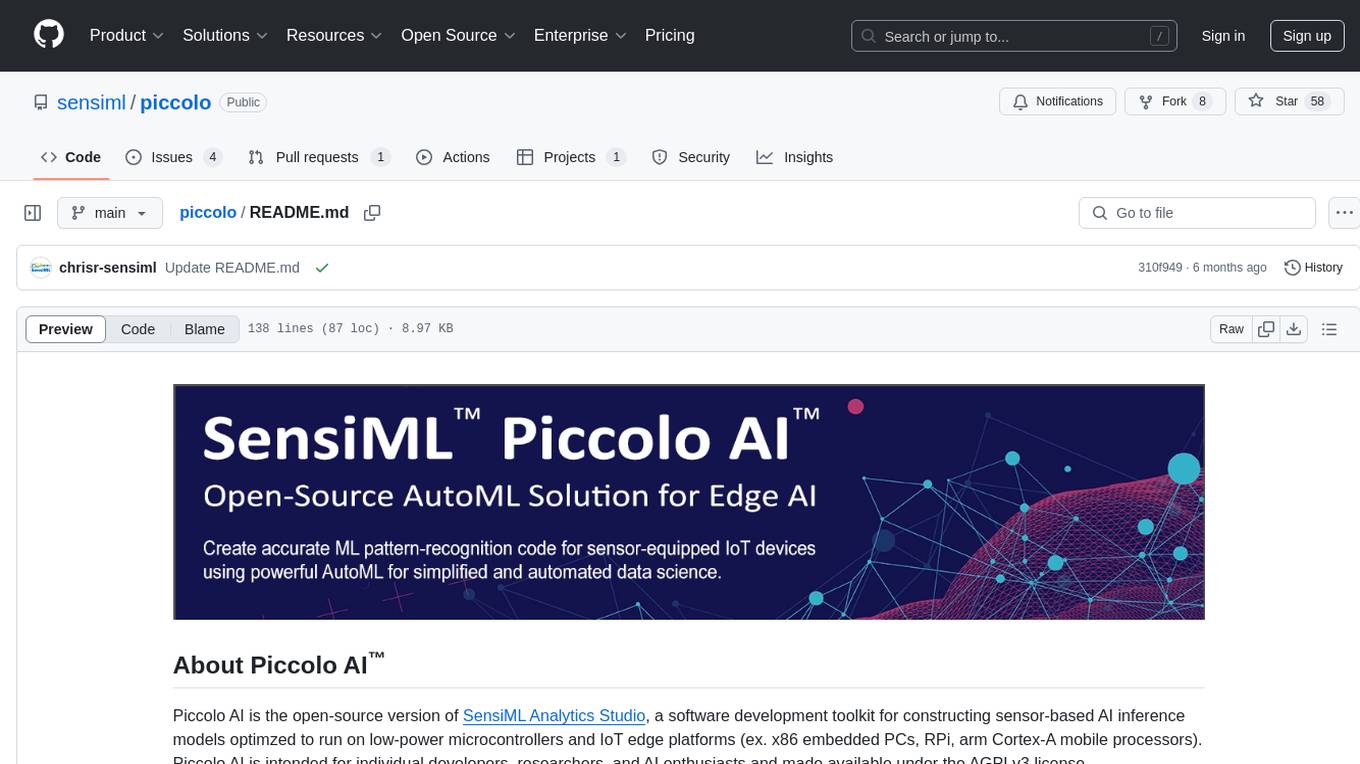
piccolo
Piccolo AI is an open-source software development toolkit for constructing sensor-based AI inference models optimized to run on low-power microcontrollers and IoT edge platforms. It includes SensiML's ML Engine, Embedded ML SDK, Analytic Studio UI, and SensiML Python Client. The tool is intended for individual developers, researchers, and AI enthusiasts, offering support for time-series sensor data classification and various applications such as acoustic event detection, activity recognition, gesture detection, anomaly detection, keyword spotting, and vibration classification.
For similar jobs

lollms-webui
LoLLMs WebUI (Lord of Large Language Multimodal Systems: One tool to rule them all) is a user-friendly interface to access and utilize various LLM (Large Language Models) and other AI models for a wide range of tasks. With over 500 AI expert conditionings across diverse domains and more than 2500 fine tuned models over multiple domains, LoLLMs WebUI provides an immediate resource for any problem, from car repair to coding assistance, legal matters, medical diagnosis, entertainment, and more. The easy-to-use UI with light and dark mode options, integration with GitHub repository, support for different personalities, and features like thumb up/down rating, copy, edit, and remove messages, local database storage, search, export, and delete multiple discussions, make LoLLMs WebUI a powerful and versatile tool.

Azure-Analytics-and-AI-Engagement
The Azure-Analytics-and-AI-Engagement repository provides packaged Industry Scenario DREAM Demos with ARM templates (Containing a demo web application, Power BI reports, Synapse resources, AML Notebooks etc.) that can be deployed in a customer’s subscription using the CAPE tool within a matter of few hours. Partners can also deploy DREAM Demos in their own subscriptions using DPoC.

minio
MinIO is a High Performance Object Storage released under GNU Affero General Public License v3.0. It is API compatible with Amazon S3 cloud storage service. Use MinIO to build high performance infrastructure for machine learning, analytics and application data workloads.

mage-ai
Mage is an open-source data pipeline tool for transforming and integrating data. It offers an easy developer experience, engineering best practices built-in, and data as a first-class citizen. Mage makes it easy to build, preview, and launch data pipelines, and provides observability and scaling capabilities. It supports data integrations, streaming pipelines, and dbt integration.

AiTreasureBox
AiTreasureBox is a versatile AI tool that provides a collection of pre-trained models and algorithms for various machine learning tasks. It simplifies the process of implementing AI solutions by offering ready-to-use components that can be easily integrated into projects. With AiTreasureBox, users can quickly prototype and deploy AI applications without the need for extensive knowledge in machine learning or deep learning. The tool covers a wide range of tasks such as image classification, text generation, sentiment analysis, object detection, and more. It is designed to be user-friendly and accessible to both beginners and experienced developers, making AI development more efficient and accessible to a wider audience.

tidb
TiDB is an open-source distributed SQL database that supports Hybrid Transactional and Analytical Processing (HTAP) workloads. It is MySQL compatible and features horizontal scalability, strong consistency, and high availability.

airbyte
Airbyte is an open-source data integration platform that makes it easy to move data from any source to any destination. With Airbyte, you can build and manage data pipelines without writing any code. Airbyte provides a library of pre-built connectors that make it easy to connect to popular data sources and destinations. You can also create your own connectors using Airbyte's no-code Connector Builder or low-code CDK. Airbyte is used by data engineers and analysts at companies of all sizes to build and manage their data pipelines.

labelbox-python
Labelbox is a data-centric AI platform for enterprises to develop, optimize, and use AI to solve problems and power new products and services. Enterprises use Labelbox to curate data, generate high-quality human feedback data for computer vision and LLMs, evaluate model performance, and automate tasks by combining AI and human-centric workflows. The academic & research community uses Labelbox for cutting-edge AI research.
